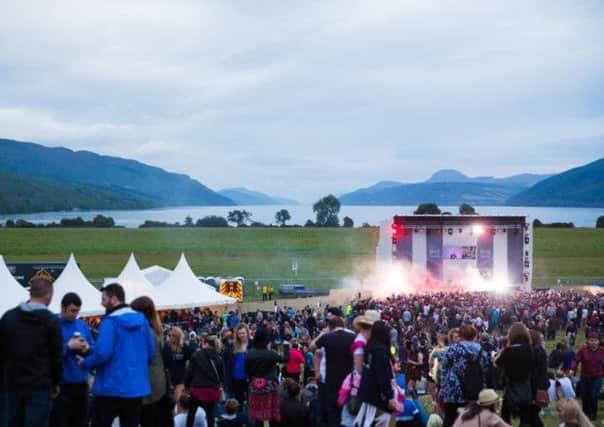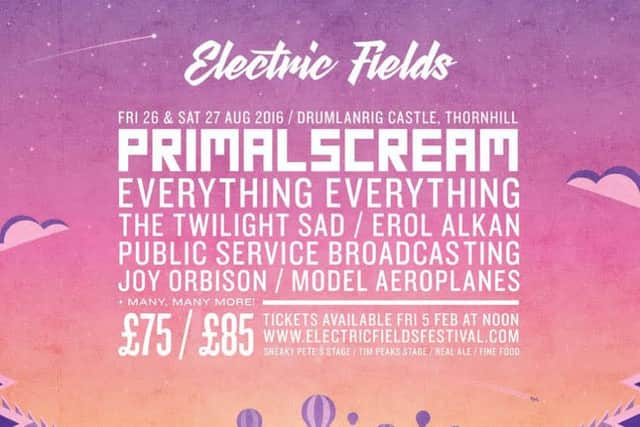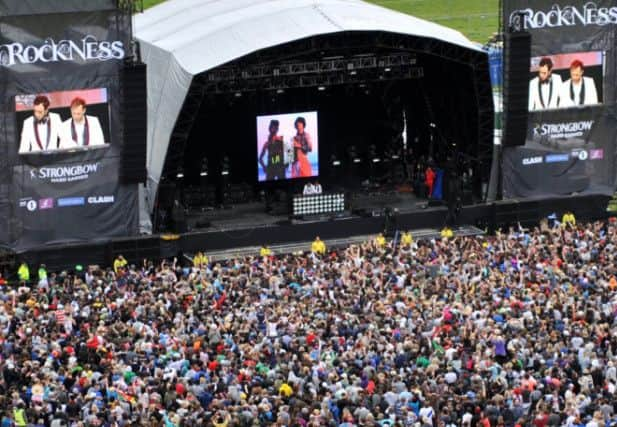What does the future hold for Scotland's music festivals?


Brand new festivals
The cancellation of much-loved RockNess festival in 2014 was a major hit for music lovers. The event had previously attracted around 30,000 people to the area but was cut due to clashes with sporting events. After running since 2008, the festival officially bowed out last year, followed shortly by Wickerman, which decided to take a year off. This opened up a whole new range of opportunities for organisers to snap up their fans.
One such festival stepping into the pretty sizable shoes of RockNess is the 2015 founded Grove Loch Ness, described as a nightclub under the stars. The festival is the brainchild of four important players in the Highland music sector. One of the co-founders Sam Barker explained: “Niche festivals are coming back just now as the mainstream commercial music scene is a bit stale, with less acts filling the void between newcomers and superstars. On the dance scene there’s a wealth of up-and-coming acts, producers and DJs which are making great music.”


Exciting locations
Advertisement
Hide AdAdvertisement
Hide AdLocation can be a determining factor in the success of a festival, especially for remote parts of country. Sam added: “We don’t have a large local popular so for us location is very important - we need to ensure we provide a backdrop that will attract people to a beautiful space for a weekend that will always be remembered.”
Going forward in 2016, events will be continuing to capitalise on the Scottish surroundings. This year will see the UK’s first resort based snowsports festival, Groove Cairn Gorm, take place in Aviemore.
Joe Gibbs, promoter for Belladrum Festival explained: “Plonking a stage down in a field anywhere doesn’t work any more, if it ever did. There are too many festivals in the UK so you have to be careful over what you offer and where you offer it.


“When Belladrum started there was nothing else in the Highlands. In terms of the actual site it needs to ‘smile’ - to feel intimate while fitting enough people and just to induce the right atmosphere.”
Island festivals are also likely to continue to grow in popularity as they provide festival-goers with an opportunity to visit Scotland’s most scenic islands and bring a much welcome boost for tourism. Last year, the Isle of Bute, Tiree and Mull of Kintyre all hosted their own events covering a whole wealth of music including traditional, classical and mainstream.
Affordable ticket prices


Another new addition to the festival calendar, Electric Fields, will be welcoming crowds to Drumlanrig Castle in Dumfries and Galloway. The festival aims to offer a platform for emerging acts and affordable ticket prices. Co-founder Nick Roberts believes that putting the audience at the centre of every stage of planning is the key to success.
“We try as much as possible to keep thinking of the festival from an audience members point of view while we’re planning it”, he explained. “There have been a lot of changes with the bigger festivals which have been in the public eye, but I think it’s important to remember the real purpose behind festivals which is to provide incredible experiences.”
Advertisement
Hide AdAdvertisement
Hide AdGlasgow’s Tenement Trail and Stag and Dagger festivals, capitalise on the city’s selection of venues which are known and loved by music fans. The accessibility and affordability of the indoor festivals has added to their success with new events being developed every year.
Stag and Dagger organiser Calum Cuneen said: “We offer something quite unique to Scotland, as an established, city-centric event that makes use of some of the great venues and spaces that we have in Glasgow. From feedback I’ve had, I feel it proves its value as a platform for artists, both established and new, to play to a crowd who may or may not be familiar with them yet.”


Richy Muirhead, founder of the Scottish Alternative Music Awards and one of the organisers behind the Dirty Weekender Festival is a strong supporter of smaller events, he said: “From running and attending small festivals, they are always tend to be well received, possibly due to the affordable price point and the fact it’s something new for gig goers to try.”
Eclectic line-ups
Changes in the way we buy and sell music has not only affected record sales but has altered the face of music festivals. Sam Barker believes that lack of physical sales has impacted festival line-ups. He said: “It pushes more impetus on artists to make money from live shows meaning that it’s increasingly difficult to secure headliners and acts at reasonable fees. The big festivals suffer the most as they all compete with each other which drives the cost higher, which could be reason we’re seeing the resurgence in smaller festivals with up-and-coming acts performing.”
Smaller festivals have continued to impress with their variety of performers. Stag and Dagger’s Calum explained how having an open mind can often lead to the best experiences for attendees. “We try and be as open minded as we can be when curating the billing and actively encourage people to go and see something they may not be familiar with. Over the years we’ve seen the likes of Courtney Barnett, Mac DeMarco, Django Django, Passenger, Kurt Vile, and even Ed Sheeran play Stag in rooms that would now be considered absolutely tiny for them.”
This year music fans can expect to see everyone from Primal Scream, Madness and The Stone Roses as well as some of the best Scottish bands around including Prides, The Twilight Sad and Model Aeroplanes.
